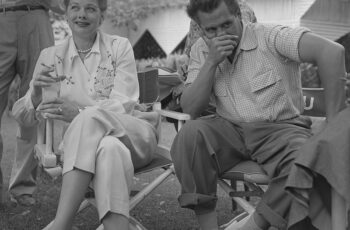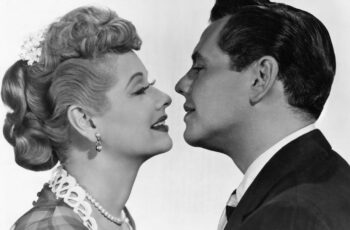During a time when interracial couples on TV were a rarity, Lucy and Ricky, with their Cuban and American backgrounds, respectively, broke barriers. The network executives initially doubted the show’s appeal to the American public. Determined to prove them wrong, Lucy and Desi took their act on the road. The audience’s overwhelming response to their comedy convinced the executives to change their minds. However, on set, Lucy was the only one allowed to playfully tease Desi about his accent. The cast and crew loved Desi so much that they felt it would be “too cruel” for anyone else to do so. Interestingly, there was one scene that Desi himself refused to perform.
Having experienced the hardships of his family fleeing Cuba for Miami when he was just 17, Desi strongly believed in the “American Dream.” As a result, he refused to act in a scene from the original script of the episode “Lucy Tells the Truth,” in which Ricky cheats the system by manipulating numbers on his income tax return. Desi didn’t want his character associated with such behavior, staying true to his principles. However, Desi had his own share of “women problems.” One of the reasons Lucille Ball fought so hard to have him as her on-screen husband was so she could keep a close eye on him.
Behind the laughter and the impeccable comedic timing, “I Love Lucy” was a show that harbored its fair share of drama. From cast dynamics to personal conflicts, the backstage stories added an intriguing layer to the beloved sitcom. It’s a testament to the enduring power of the show that, even with its hidden complexities, “I Love Lucy” continues to bring joy to audiences around the world.
As we celebrate the 65th anniversary of the last new episode, it’s worth reflecting on the remarkable legacy of “I Love Lucy.” The show’s ability to transcend time and remain relevant is a testament to the talents of Lucille Ball, Desi Arnaz, Vivian Vance, and William Frawley, who brought their characters to life with such memorable performances. It serves as a reminder that even the most enduring and beloved works of entertainment often have fascinating stories behind the scenes.
So the next time you find yourself watching an episode of “I Love Lucy,” remember the hidden dramas and personal conflicts that were woven into the fabric of the show. It’s a testament to the power of laughter and the resilience of a cast that could bring joy to millions, even in the midst of their own challenges. “I Love Lucy” may be a timeless comedy, but its story is a reminder that behind every laugh, there can be a tale of struggle, friendship, and the complexities of human relationships.


